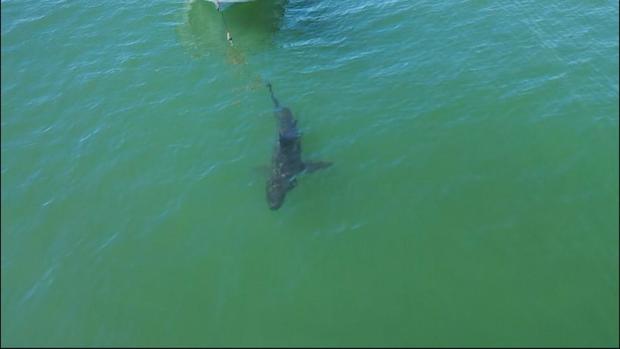Young great white sharks along Southern California coast prefer warm, shallow waters, study shows
A new study from California State University Long Beach suggests that sharks in the waters off the Southern California coast prefer warm, shallow waters, similar to many beachgoers.
"What I found is that they're not that different from Southern Californians, in that they are pretty picky in the temperatures that they like to swim in," researcher Emily Spurgeon said.
Spurgeon is with the university's Shark Lab. For the last two years, she's helped tag and trace the movements of nearly two dozen juvenile white sharks. She found that the sharks first seek out warmer water, especially enjoying the conditions in Southern Californian waters between spring and fall.
"The optimal temperature in order to grow, to survive, we found was about 68 to 72 degrees Fahrenheit," she said.
She also found that juvenile great whites preferred to swim in shallow water, spending about 75% of their time in areas no more than six feet deep. Spurgeon said they stayed in these waters to protect themselves against other predators and to find some prey to eat.
"The adults will spend more time in deeper colder water," she said. "But these juveniles ... they are swimming where all the people also like to swim."
This could be unnerving for some, including an 8-year-old named Bailey.
"I'm kind of terrified of it," the 8-year-old said. "It would be pretty cool to see them, I guess."
Spurgeon hopes that this latest research will help secure more funding for other studies that could be vital to swimmers' safety.
"We need to understand what drives that movement, to let the lifeguards and public know," she said. "But also, to conserve and understand the species."





